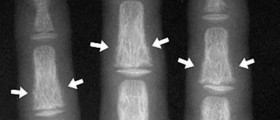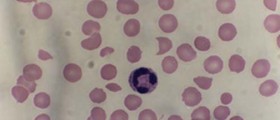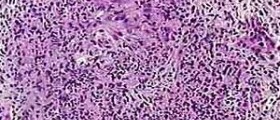
Acute kidney injury (AKI) or acute renal failure (ARF) is characterized by the sudden and rapid loss of kidney function. Patients with high level of blood urea nitrogen (BUN) and creatinine or inability to produce sufficient amount of urine are lab results seen in many patients suffering from AKI. AKI is classified according to the pathophysiology, so it can be pre-renal, intrinsic renal or post-renal acute kidney failure. This condition can be caused by many things, including: exposure to nephrotoxic substances, obstruction of the urinary tract or low blood volume due to any cause.
Pre-renal Acute Renal Failure
Vague mental status in elderly patients usually indicated pre-renal or normotensive ischemic acute renal failure. Patients may also suffer from thirst, decreased output of urine, dizziness, orthostatic hypotension and other symptoms caused by hypovolemia. People diagnosed with advanced cardiac failure may experience orthopnea and paroxysmal nocturnal dyspnea.
Possible causes of this problem may involve: vomiting, diarrhea, sweating, as well as some bleeding (hemorrhage) or polyuria. People with restricted fluid access (comatose, sedated or elderly) may also experience fluid loses and severe hypovolemia and consequent pre-renal AKI.Intrinsic Renal AKI
Intrinsic renal acute kidney failure may be associated with glomerular etiology but doesn’t have to be. Edema and hematuria in AKI patients may suggest glomerular etiology of renal AKI. This condition is also frequently seen in patients experiencing hypotension due to some bleeding, surgery, drug overdose, sepsis or cardiac arrest. Exposure to radiologic contrast agents or some other nephrotoxins may also lead to intrinsic renal AKI. Rhabdomyolysis (characterized by muscle pain, usually after recent coma, seizure, excessive physical activity, limb ischemia or intoxication) and hemolysis (due to recent blood transfusion) could also lead to pigment-induced acute renal failure.
Certain NSAIDs (non steroidal anti-inflammatory drugs) and antibiotics may provoke allergic interstitial nephritis. This condition may also be suspected if the patient has reported: rash, arthralgia and fever.Post-renal AKI
This acute problem of the kidneys may not cause any symptoms. However, patients may suffer from post-renal Aki for a long time and it can lead to high-grade urinary obstruction. This problem is frequently seen in older men, especially in those suffering from prostatic obstruction. They usually report: urinary urgency and frequency, as well as urinary hesitancy.
Women who had some gynecologic surgery or patients with prior malignancy in the abdominal or pelvic area may also suffer from this problem. Blood in urine and flank pain may be caused by some renal calculi or papillary necrosis. Drugs like metotrexate, triamterene, indinavir, sulfonamides or acyclovir may crystallize in the tubuli and cause their obstruction.

















Your thoughts on this
Loading...